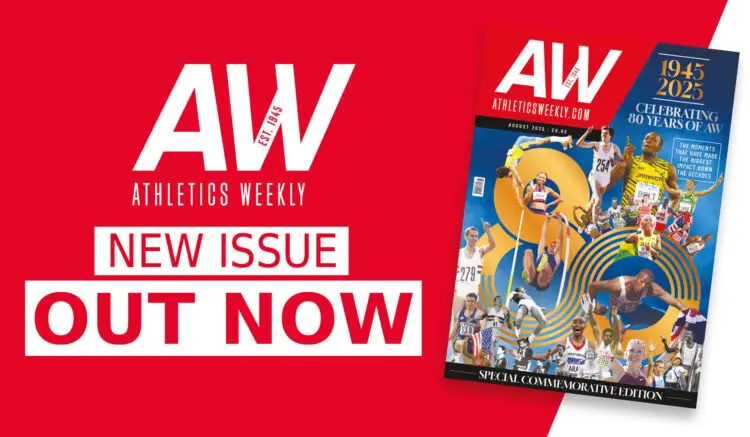These are the methods that the British 5km, 10km and half-marathon record-holder has undertaken ahead of the Great North Run
Eilish McColgan is in full preparation ahead of the autumn road running season.
After making her 26.2 mile debut in London back in April – she placed eighth overall in 2:24:25 – the 34-year-old is gearing up to compete at the Great North Run (September 7), before she takes on the New York City Marathon two months later (November 2).
It's obvious McColgan knows what it takes to perform at the highest level. The Brit is the national record-holder over 5000m, 10,000m, 5km, 10km, 10 miles and the half-marathon. She is also a triple European outdoor medallist and the current Commonwealth 10,000m champion.
McColgan, after running the London Marathon in April, has used the summer as an abbreviated break, with the view of getting back into peak shape for her next set of road races.
Reflecting on her experience in the British capital, she says: "Initially I was disappointed with my time because I know I can run much faster but after speaking with all the other elite athletes - I realised that almost everyone was down on their best.
"Perhaps it was the weather conditions as it was much hotter than we all expected. I definitely wasn't prepared for it to be as warm as it was and ended up cramping very early into the race which made for a pretty painful last half. Looking back, I'm incredibly proud of finishing my first marathon despite the challenges leading into the race and during it."

McColgan's focus is now squarely on the Great North Run. Completing the 13.1 mile course from Newcastle to South Shields last year in 67:45 saw the Brit beat her mum Liz's Great North Run record mark and, this time around, she is determined to join Liz on the honours board.
To best prepare for the race, McColgan's weekly training has involved two interval sessions on the track, one long run, several easy runs and one full rest day, allowing her to build towards the event without sacrificing recovery or increasing injury risk.
"It's a pretty standard format for me regardless of what race I'm aiming for," McColgan says. "Obviously for the half-marathon, my sessions will be geared more towards 10km and half-marathon pace and my long runs will build towards 16 miles."
With McColgan adding volume through low-impact cross-training sessions, it means she doesn't run as many miles as some other elite endurance athletes. After a brief recovery period after the London Marathon, she has rebuilt her base fitness over the last few months and is matching her peak from April.
During her most recent build, McColgan spent time in all six heart rate zones, but has slightly stronger emphasis on zone two (aerobic endurance) and zone four (threshold).

However, given she competed in London four months ago, she hasn't followed a traditional multi-phase training cycle for the Great North Run, putting her summer training in three distinctive blocks. "June has been just a 'get into running again month', July a 'get fit camp' and August 'preparing to race'."
The core training elements have included one long run, two harder interval sessions and, a few days a week, cross-training in the evening for 40-60 minutes. Her more intense sessions have involved 10x1000m or 20x400m.
In the immediate build-up to the Great North Run, McColgan has stayed disciplined and her last hard session will occur a week out from the race, before a controlled and easy final week. "There have been no real changes to my training this year as my main focus has been building back again from knee surgery," she says. "Last year I was still struggling for consistency so it was nice this year to tick off London Marathon as my first one and then start the building process all over again."
With McColgan's 10km and half-marathon personal bests being 30:10 and 65:43 respectively, can she get back to those sort of times again at some point in the future?

"I'd love to get back to that shape again, but I have to be realistic," McColgan says. "After London, I took a much needed break and reset so only began my training again around June. We have built up pretty gradually so it's going to take longer than just two to three months to get back into personal best form.
"My 10km time is a European record so that level of fitness doesn't happen overnight. It's months and months of consistency required to reach that level, but I feel confident we are on the right path and hopefully I can rewrite some of those personal bests in 2026 and beyond."
"For me, data is one of the most powerful tools in my training," McColgan adds. "The watch isn’t just telling me how far or fast I’ve run - it’s giving me insight into my heart rate, effort levels, recovery, and even how I’m adapting over time.
"That allows me to spot patterns, understand what’s working, and make adjustments. It’s also a way to take the guesswork out of training. I can see if I’m hitting the right paces, spending enough time in the right training zones, and recovering properly between sessions. Over weeks and months, that consistency adds up."

